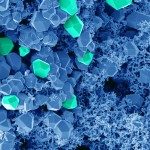About
Tuesday 26 March 2019 at 2.00 pm
AUDITORIUM CENTRE F. JACOB – CFJ RdC 17c
Dr. Tomoyasu AIZAWA
Faculty of Advanced Life Science, Hokkaido University, 060-0810
Sapporo, Japan
Development of Novel Expression Systems for NMR Structural Analysis of Antimicrobial Peptides
The production of large numbers of targets is a key step in three-dimensional structural studies on peptides and proteins. For example, NMR studies using stable isotope-labeled recombinant peptides/proteins are among the most powerful means of studying peptide and protein structures. Many protein expression systems have been established to produce recombinant proteins. Moreover, a wide variety of strategies have been developed to improve the yield of recombinant proteins. One such strategy, fusion protein systems have generally been used to improve protein folding and solubility, yielding biologically active products. However, these approaches are not always successful. In particular, it is very difficult to produce target peptides and proteins that are lethal to host cells and/or are easily degraded in soluble form.
We present here a novel method of facilitating the expression level in E. coli of a recombinant peptide that is difficult to express in conventional production systems. We demonstrated that coexpression of the aggregation-prone protein remarkably enhanced the target peptide’s expression level. It seems that overexpression of the partner protein protects the target peptide from proteolytic degradation by forming insoluble inclusion bodies, thus accounting for the higher observed yields. Importantly, this method can isolate the target peptide from the partner protein by simple affinity chromatography, and it never requires chemical or enzymatic cleavage of the fusion protein. These advantages make our new method sufficiently effective and cost-efficient for large-scale production.
Contact : Pascal Poncet
Direction de la Technologie et des Programmes Scientifiques
